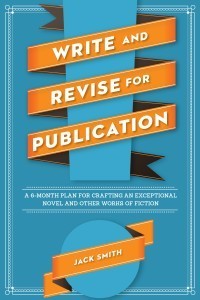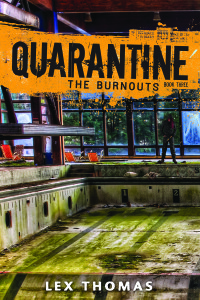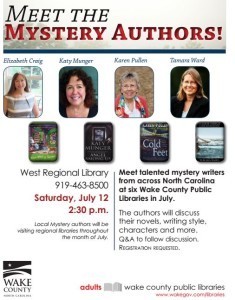Elizabeth Spann Craig's Blog, page 131
July 31, 2014
Writers—Be Careful How You Sit
by Elizabeth S. Craig, @elizabethscraig
Today I have another public service announcement for all the writers out there—sitting can be hazardous to your health.
Yes, I know. We thought we had the kinds of jobs where injuries might be limited to paper cuts or possibly dropping a laptop on our foot.
Unfortunately, I’m here to state otherwise. I’ve been in physical therapy for back issues for the last month. Occasionally I wear a hideously unstylish brace that resembles a corset in both appearance and comfort level. Anyone seeing me in the brace has asked, “Elizabeth, what happened?”
I think they’re expecting some exciting tale of adventure gone wrong (which is silly of them, if they know me at all). Snow skiing or waterskiing maybe? Perhaps some awful car accident? But I have to admit that I received my back problems from…sitting.
The doctor said it took years to get my back in the condition it’s in now…so PT is twice a week and moving a bit slowly for this impatient writer.
There were things that I shouldn’t have done that I did fairly constantly in the last ten years:
Sat on an overstuffed sofa with my feet on the coffee table and my laptop on my lap. Don’t do this.
Sat in an armchair with my feet on an ottoman and my laptop on my lap. Don’t do this, either.
Sat for long stretches, period. Yet another no-no.
This interesting graphic from Bonnie Berkowitz and Patterson Clark for the Washington Post clearly shows the health hazards of sitting and ideas for combatting the problem, including various stretches (that resemble what I’m doing in PT) and exercise balls.
Sadly, I think the way I sat was very similar to the person in the graphic. Except, of course, that my feet were up and the laptop was in my lap, not on a desk. :)
The best practice seems to be to sit with your feet on the floor and your laptop on a desk or a table of some kind. Sit with your back straight. And take frequent breaks.
Porter Anderson also wrote about the dangers of sitting in his recent post, “Don’t Take Author Obesity Sitting Down” for Writer Unboxed. We all know the myriad problems that obesity causes and sitting certainly tends to put pounds on. Fortunately, obesity isn’t my issue, but I would have done well to take Porter’s advice on standing desks in the post. I have used a standing desk off (well, it’s a standing counter, since I was writing in my kitchen) for the past couple of years but not enough for me to avoid the pickle I got myself in. In the post, Porter offers ideas for a “trial period” for using a standing desk.
RSI, repetitive strain injury, is another issue writers face. I’ve also had problems with RSI in the past and have learned to back off from typing and do some stretches when it starts flaring up. I’ve also had some success with voice recognition software (Dragon Naturally Speaking) when I’ve been on deadline at the same time I’ve had issues.
Author Roz Morris has had problems with RSI and wrote about how she deals with it in her post “RSI and when your books come back to haunt you.” She mentions posture, weight-lifting, and taking breaks as being helpful, among other things.
There is actually even software designed to force you to take writing/computer breaks (Workrave is one. Reviewed by CNET’s Dan Russell here).
Lifehack’s Anca Dumitru offers advice in her article, “How to Overcome RSI While Building Your Dream Writing Career.” In it she links to helpful hand and wrist exercises.
I’ve mentioned recently that I’m doing a good job exercising…but I was definitely not doing a good job being careful how I worked, until now. What’s your work station like for your computer time?
Image: MorgueFile: Jade
The post Writers—Be Careful How You Sit appeared first on Elizabeth Spann Craig.
July 28, 2014
Setting: Context & Picture
Guest Post by Jack Smith
When we think of a novel, we think of a story. We think of characters moving through time, growing due to conflict, coming ultimately to some sort of realization, undergoing some sort of change—maturing in some way. We think of plot. We think of theme.
We also think of setting. One thing that makes some novels memorable is a richly developed sense of setting.
A novel must have some sort of setting, or physical environs, where characters move and have their being. Two questions come up. 1.) How important is setting in a given novel? 2) How do you go about creating setting? The second question is related to the first because in some novels, if setting is not a major force, you shouldn’t do very much at all. But if setting is really important, and if it’s important to create strong visual pictures of place, you have a choice of depicting it with a few brush strokes or really describing it in vivid detail.
CONTEXT: When you think about setting, think about your character in a given context, with a particular sensibility. The South is different from the North, the West from the East. The ambiance at a factory is quite different from that of a college or university. A home in the suburbs is different from a high-rise apartment in the city.
Secondly, I would like to add, as I did in my Write and Revise for Publication,that setting can include people associated with a particular place. Your character’s workplace includes not only desks, machines of various kinds, etc., but also the co-workers who contribute to the overall atmosphere. Imagine them missing: It’s not the same place, is it?
There’s usually more than one context for a given character. And so ask yourself the following kinds of questions:
1) Which setting has primary influence on my character—home, work, a recreational spot of some kind, a place of refuge?
2) How does my character feel about the places in his or her life? Happy, annoyed, frustrated, depressed, etc? How important is place in my character’s life?
3) Does setting contribute significantly to my character’s conflicts in the story? If so, how? And how much?
DEPICTING SETTING. If a particular setting doesn’t have much to do with your character’s struggles, then give it minimal detail—just enough to establish where your character is—enough to establish the place in your reader’s mind. With places that are pretty important—plot-wise, character-wise—then, of course, you should bring them alive for your reader—in one of two ways, the first minimalist, the second maximalist: 1) by brush strokes of descriptive details interspersed with scenic treatment of characters associated with the setting, 2) by thorough descriptive detail.
–a few brush strokes with scenic treatment: Pick and choose key concrete details which are just enough to give your reader a real sense for the place. Let your reader fill in the rest. Scenes with several specific details—not necessarily concrete—can also help your reader visualize a place. With enough specific details, and a sense of lived experience through strong scenic development, the reader will fill in the rest.
–rich and numerous specific and concrete details: Furnish a full-blown picture of place. This can work quite well if it’s important to capture a number of nuances about it. But you do have to be careful not to overdo it, and you also need to create a dominant impression.
Certain places can be quite important in a novel, others less so. For places that are important, it’s important to know in what ways, and how to capture these places so that the reader can picture them, feel like they’re there, wherever there happens to be.
Jack Smith is author of the novel Hog to Hog, which won the George Garrett Fiction Prize (Texas Review Press. 2008), and is also the author of Write and Revise for Publication: A 6-Month Plan for Crafting an Exceptional Novel and Other Works of Fiction, published earlier this year by Writer’s Digest. His novel ICON will be published in June by Serving House Books.
Prize (Texas Review Press. 2008), and is also the author of Write and Revise for Publication: A 6-Month Plan for Crafting an Exceptional Novel and Other Works of Fiction, published earlier this year by Writer’s Digest. His novel ICON will be published in June by Serving House Books.
Over the years, Smith’s short stories have appeared in North American Review, Night Train, Texas Review, and Southern Review, to name a few. He has also written some 20 articles for Novel & Short Story Writer’s Market, as well as a dozen or so pieces for The Writer. He has published reviews in numerous literary journals, including Ploughshares, Georgia Review, Missouri Review, Prairie Schooner, American Review, Mid-American Review, and the Iowa Review.
The post Setting: Context & Picture appeared first on Elizabeth Spann Craig.
July 26, 2014
Twitterific Writing Links
by Elizabeth S. Craig, @elizabethscraig
Twitterific links are fed into the Writer’s Knowledge Base search engine (developed by writer and software engineer Mike Fleming) which has over 23,000 free articles on writing related topics. It’s the search engine for writers.
Clean Your Desk for Productivity (but Keep It Messy for Creativity): http://ow.ly/zpSju @99u
Name generators: http://ow.ly/zpQAb From Clever Girl Helps
Book Marketing with Videos: http://ow.ly/zpQmO @trainingauthors @KatieDavisBurps
Copyright Warnings – Hold Onto Your Rights: http://ow.ly/zpZHX @susanspann
5 Tips for Writing a Powerful Short Story: http://ow.ly/zpZMU @FaberAcademy
Horror Clichés in need of an Exorcism: http://ow.ly/zpZqt @DrewChial
An agent’s advice on tapping industry connections to find an agent: http://ow.ly/zq0eT @Janet_Reid
7 industry experts weigh in on author platforms and branding: http://ow.ly/zBk17 @Janefriedman @scratch_mag
4 Things Writers Should Know About Beta Readers: http://ow.ly/zpXHL @NatRusso
Writing an Action Scene? 5 Ways to Add More Punch to Your Novel http://ow.ly/zpXVF @hughosmith
Author Directory Sites: The Complete List: http://ow.ly/zpYIV @selfpubreview
8 Techniques To Up The Drama Factor In Your Short Stories: http://ow.ly/zpZRo @writersrelief
350 Character Traits: http://ow.ly/zpYe5 @amandaonwriting
Self-aware vs self-absorbed narration in travel writing: http://ow.ly/zpXoA @MatadorNetwork
How Not to Start a Novel: 4 Things to Avoid on Page 1: http://ow.ly/zpYoH @janice_hardy for @annerallen
5 Scene Pacing Tips: http://ow.ly/zq01s @SKouguell
Why Most Authors Should Not Have Social Media Accounts for Their Books: http://ow.ly/zpYEc @DanielDecker
Should crime authors mix fact and fiction? http://ow.ly/zpY6x @musiciany
20 Hollywoodian Clichés to Ban From Your Script: http://ow.ly/zpX6J @Mentorless
How to Write a Negative Character Arc: The Second Act: http://ow.ly/zpXZp @KMWeiland
On Writing Practice Novels: http://ow.ly/ztkN6 @ava_jae
Staying Motivated During the Tough Times: http://ow.ly/ztkTN @stdennard
7 Things To Do When You Don’t Feel Like Writing: http://ow.ly/ztmCe @writing_tips
What Entrepreneurs Can Learn From Stephen King: http://ow.ly/ztke3 @entmagazine
How to Write a Historical Fiction Young Adult Novel: http://ow.ly/ztm6X @ShanonHitchcock
Character Talent & Skills Thesaurus Entries: http://ow.ly/ztmA6 @angelaackerman
Writing Residency 101: What They Are and How to Get One: http://ow.ly/ztlvp @WindyLynnHarris
Test Your Story’s Opening Line: http://ow.ly/ztm5a @SueColetta1
Why Transmedia Storytelling Engages Young People: http://ow.ly/zpSEL @cherylrwrites
5 Conversation-Starting Questions to Ask Writers: http://ow.ly/zpSwu @StacyEnnis
4 Characteristics of Author Attitude and Why You Need Them: http://ow.ly/zpTYj @ninaamir
Structuring a Novel: The Life Changer: http://ow.ly/zpTTb @CalebPirtle
Talents and Skills Thesaurus Entry: A Way with Animals: http://ow.ly/zpPff @beccapuglisi
Fearlessness in creativity is a myth: http://ow.ly/zpSpl @jonwilkening
Sharing content more than once on social media: http://ow.ly/zpPzc @wherewriterswin
Admin Assistants in Crime Fiction: http://ow.ly/zA6LD @mkinberg
Amazon Adds Pricing Suggestions to KDP: http://ow.ly/zA49z @thDigitalReader
Making Your Home Page Stand Out: http://ow.ly/zpSPs @SusanGilbert
Comment Etiquette: http://ow.ly/zpQFH @writing_tips
5 stellar grammar sites for writers: http://ow.ly/zpPbF @junglereds
10 Common Types of Writer’s Block: http://ow.ly/zpRXB @gointothestory
5 Ways to Write Anti-Heroes Your Readers Won’t Want To Kill: http://ow.ly/zpU4y
7 Steps to Editing Like a Master: http://ow.ly/zn3SL @beccaquibbles
Describing the protagonist when you’re writing in first person: http://ow.ly/zn4eB From Clever Girl Helps
Pros and Cons of Writing in First Person: http://ow.ly/zn4Ep
How Movie Trailers Can Help You Write Better Query Letters: http://ow.ly/zn3ON @janice_hardy
On Writing Flashbacks: http://ow.ly/zn3PX @ava_jae
10 Steps To Provide a Helpful Critique: http://ow.ly/zn3HA @Shirl_Corder
Writing Strong Transitions: http://ow.ly/zn3Nw @writeabook
Queries–nudging etiquette: http://ow.ly/zn3UE @atrueblood5
26 Of The Greatest Book Dedications: http://ow.ly/zn4yk @JoBarrow
Great Character: Mr. White (“Reservoir Dogs”): http://ow.ly/zn42c @gointothestory
A Helpful Way to Determine When Not to Use “Whom”: http://ow.ly/zn3IR @CSLakin
Write What You Love and Stay True To Your Passion: http://ow.ly/zn3Ma @KALongshore
The shape-shifting factor in publishing: subscriptions: http://ow.ly/zwjjD @Porter_Anderson @TheFutureBook
Reevaluating, Reorganizing & Recommitting to Your Goals: http://ow.ly/zn3wo @KelliAnnMorgan
What does it take to create a regency romance? http://ow.ly/zn3so @EmbracingRomanc @authorJessicaJ
5 Ways to Add Conflict to Your Story: http://ow.ly/zn3Fy @mythcreants
Labor Unrest Among Amazon’s Authors: http://ow.ly/zwizG @Porter_Anderson @HughHowey @bob_mayer
New Indie Authors: What 1 Experienced Author Would Do if She Were Starting Today: http://ow.ly/zlT3L @goblinwriter
5 Reasons To Pan Those 5-Star Reviews: http://ow.ly/zweCr @drothmanwrites @Porter_Anderson
Top 10 Storytelling Cliches Writers Should Stop Using: http://ow.ly/zlT9T @robwhart
6 Ways eBooks Are Reaching More Readers: http://ow.ly/zlTly @AnnaGuastello
Adding Horror Elements to Your Writing: http://ow.ly/zlSZI
Writing the Sex Scene: http://ow.ly/zlTk3 @SusanSquires
7 Absurd Kanye West Quotes That Will Actually Help Your Writing: http://ow.ly/zlTby @rxena77
Creating A Creative Outline: http://ow.ly/zlSUO @woodwardkaren
Viewpoint is about judgment: http://ow.ly/zlSKB @AnthonyEhlers
Writing a scene: a checklist: http://ow.ly/zlSXm @johnaugust
Why and How to Schedule Your Personal Writer’s Retreat: http://ow.ly/zlTro @GretaBoris
Present Participle as Adjective: http://ow.ly/zlSJF @writing_tips
10 Tips on Writing – and Writing More: http://ow.ly/zlTfr @GarthSWright
The best literary hashtags on Twitter: http://ow.ly/zlTdr @readandbreathe @salon
The Aspiring Writer’s Dictionary http://ow.ly/zlTmJ @BillFerris @writerunboxed
Writing Revealing Dialogue: Self-centered People and Unpredictable Outcomes: http://ow.ly/zlTo4 @kiersi
How Believable Is Your Character’s Storytelling? http://ow.ly/zlT6h @skyefairwin
Why Amazon Terrifies Publishers: Let’s Look At Royalty Statements: http://ow.ly/ztkWS @GeorgeAnders @forbes
21 biggest amateur screenwriting mistakes: http://ow.ly/zkNN2 @scriptshadow
Things to Consider When Considering Self Publishing: http://ow.ly/zkOaR @srjohannes
The Boundary-Pushing Novelist Who’s Made Twitter His New Medium: http://ow.ly/ztkEN @tejucole @wired @Thessaly
Reading Through Someone Else’s Eyes : http://ow.ly/zkOfE @NewYorker
1 Writer Navigates the 1st Summer of Her MFA: http://ow.ly/zkNTj @themfayears
Why You Should Act As Your Own Author-Publisher (At Least Once): http://ow.ly/zkP4A @ChuckWendig {lang}
Concept, Structure and Transformation – How to plan a novel : http://ow.ly/zkOmU @VeronicaSicoe
The 5 Ways Every Story Should Begin: http://ow.ly/zkNrg @Jackson_D_Chase
3 anti-social skills to improve your writing: http://ow.ly/zkNKN @TED_ED
The Importance of Journaling: http://ow.ly/zkO5l @chrstnejschmdt
How to Understand Self-Publishing Acronyms: http://ow.ly/zkNG5 @booklife
Writers on Writing: “Writing What I Want”: http://ow.ly/zkOVz @LoriLitchman
How To Write A Screenplay You Can Sell : http://ow.ly/zkOO4 @goodinaroom
4 Rules for Enhanced Creativity and nailing word count: http://ow.ly/zkOkW @cairnswrites
Writing Thrillers: 50 Lessons Learned From Thrillerfest 2014: http://ow.ly/zkOiZ @thecreativepenn
Why All Writers Should Write Book Reviews: http://ow.ly/zkNZ2 @brunsdavid
First drafts: what they should and shouldn’t be: http://ow.ly/zgAzX @nownovel
How To Market Your New Book http://ow.ly/zgvVO @brettarends @forbes
Ray Bradbury on Failure, Why We Hate Work, and the Importance of Love in Creative Endeavors: http://ow.ly/zgwEK @brainpicker
Don’t Take Author Obesity Sitting Down: http://ow.ly/zqkkf @Porter_Anderson @writerunboxed
8 Story Fixes: http://ow.ly/zgA5N @JaredMGordon
Hiring a Book Publicist 101: http://ow.ly/zgCfq @suegreenbergpr
20 Screenwriting Tricks And Tropes We Never Need To See Again: http://ow.ly/zgyBt @io9
Why 1 Writer Left Her Agent & New York Publisher: http://ow.ly/zpYPn @ClaireCookwrite for @JaneFriedman
Writing: One Size Does Not Fit All: http://ow.ly/zgw8l @writing_tips
Navigating the Book Promotion Jungle: http://ow.ly/zgzGQ @WriterlyTweets
7 Pieces of Life Changing Writing Advice From Dear Sugar: http://ow.ly/zgwLE @RyanHoliday @thoughtcatalog
Digital Revolution Act 2: TheTrue Nature of Amazon Revealed? http://ow.ly/zpiOX @claudenougat
Why write flash fiction? http://ow.ly/zgzSz @LenKuntz
Patience Is a Writer’s Most Important Virtue: http://ow.ly/zgw3X @writeitsideways
An agent’s advice on when new writers should start attending conferences: http://ow.ly/zgwTA @Janet_Reid
Integrating Writing Into Life: http://ow.ly/zoyH5 @LexThomasAuthor
Writing by hand, or typing: when are you most creative? http://ow.ly/zgwgr @chrisrobley
Words to avoid when writing jacket copy: http://ow.ly/zgwxB @markkrotov
Practice, Persistence, Professionalism: http://ow.ly/zgsHc @nancyjcohen
Is Your Book Cover Design Stopping You From Being On The Bestseller List? http://ow.ly/zgvsg @ThomasEMcGee
Malapropisms, Spoonerisms and Oxymorons: http://ow.ly/zgfg6 @CASpeight
How to Survive Slow Book Sales: http://ow.ly/zgfnG @shalvatzis
Being the Person Your Writing Needs You to Be: http://ow.ly/zgfBb @LeonardoTrait
Who Said What? Speech Tags Decoded: http://ow.ly/zgfxM @HGComan
Why Your Book Deal Is Just the First Step: http://ow.ly/zgfIa @LizandLisa @writerunboxed
Food Idioms Can Fuel Our Writing Career: http://ow.ly/zgePM @pubcoach
How much time should writers spend blogging and building websites? http://ow.ly/zgeu1 @roz_morris
Essential Dos and Don’ts for Author-Bloggers: http://ow.ly/zgfko @annerallen
The post Twitterific Writing Links appeared first on Elizabeth Spann Craig.
July 24, 2014
Resources for Writers—Industry News
By Elizabeth S. Craig, @elizabethscraig
I’ll be the first to admit that reading industry news can be…stressful. I’m one of those people who avoids confrontation at all costs, so I rarely weigh in, although I follow trends and news very closely. I form opinions and those opinions evolve as circumstances evolve.
But it’s vital that we keep abreast of developments. News stories help us make smart decisions with our career paths and contracts. So I thought I’d provide some reputable sources here for news and information. Some of these sites frequently display bias toward self-published/indie authors and some are most-often biased toward traditional publishers. I read them all. I remember studying abroad in London during college and being told I should read The Times, The Independent, and The Guardian to get a balanced view of my own. So I’m following in that tradition.
First off, journalist Porter Anderson’s site. If you don’t have time to follow various sites but want to keep up with industry news…he pulls everything together for you in his reports. He curates news and does a nice job bringing different viewpoints together in each of his posts. Porter writes for different sites, so it’s probably best to follow his site’s RSS feed so you can keep up with him. Or, if you’re on Twitter, just follow him there to receive the most current information—and to also pick up his live feeds from the different conferences he covers.
If you’re looking for breaking industry news, reporter Laura Hazard Owen at Gigaom does a nice job keeping writers current. Her stories can be found here.
Jane Friedman’s weekly feature, “The Smart Set,” is excellent for sharing excerpts of well-written posts on current hot topics and raising questions culled from the content.
Attorney David Vandagriff ‘s Passive Voice Blog serves as an aggregator of industry news and industry discussion. Reading the comments is a must.
Hugh Howey is doing an amazing job speaking on behalf of self-published writers and appears to be on the verge of sparking what Porter Anderson termed a labor movement. He always has something interesting and thoughtful to say.
Joe Konrath’s posts can get heated, but his thoughts on problems inherent with traditional publishing frequently fascinate me.
David Gaughran’s blog reports on industry upheaval but also helps writers wade through tough issues and helps provide guidance on areas writers might be debating (should we go on Wattpad? Should we try KDP? What does the breaking news from Amazon mean for me?). He’s also done some nice reporting on publishing scams.
Digital Book World reports industry news and holds a yearly conference for publishers and other content providers on adapting to the digital landscape.
Mike Shatzkin’s blog, The Shatzkin Files, offers in-depth analysis of publishing-related issues from an industry perspective. (Mike Shatzkin has spent nearly fifty years in the business in many different roles.)
So…if you want to keep up with industry news, there are plenty of options. What are some of your favorite sites? Read any of these?
Image: MorgueFile: Alvimann
The post Resources for Writers—Industry News appeared first on Elizabeth Spann Craig.
July 20, 2014
Integrating Writing Into Life
by Lex Thomas, @LexThomasAuthor
We all have our demons. Mine is writing. It’s been with me since I was little, this  compulsion to create. A nagging feeling like I shouldn’t be living in this moment, I should be recording it. When life is calling, when reality is demanding my attention, that urge to write it down can be a horrible feeling. I feel as though I’m being pulled in two, because an idea requires so much thought and time and energy to become realized. As much as I feel a responsibility to my waking life, to my loved ones, to the care of my home and body, to my simple day to day enjoyment, I also feel a responsibility to this story I’ve conjured in your head. And by no means is exorcising it an easy process. Writing takes time. It’s not instantaneous. It’s a process. A story becomes worth reading in stages, each one as lengthy as the one before it.
compulsion to create. A nagging feeling like I shouldn’t be living in this moment, I should be recording it. When life is calling, when reality is demanding my attention, that urge to write it down can be a horrible feeling. I feel as though I’m being pulled in two, because an idea requires so much thought and time and energy to become realized. As much as I feel a responsibility to my waking life, to my loved ones, to the care of my home and body, to my simple day to day enjoyment, I also feel a responsibility to this story I’ve conjured in your head. And by no means is exorcising it an easy process. Writing takes time. It’s not instantaneous. It’s a process. A story becomes worth reading in stages, each one as lengthy as the one before it.
So the question becomes: how do I manage this responsibility of writing when it doesn’t feel like it fits neatly into the rest of my life? Figuring out how to manage writing has been as much of a journey as the craft of it. There are those impossible maniacs who seem to be able to write anywhere, anytime, picking up and putting down their narrative at the drop of a hat, writing on napkins, in their phones, on walls. I’ve never been that way. I’ll do that when I’m brainstorming, but as far as the actual composing of words goes, the drafting, I’m the worst kind of writer. I lost most of ability to hand-write around 2002. Now, I can’t write without a computer. It also takes me a good 45 minutes to get in the zone and another 45 minutes to get out of that creative headspace and become sane again. I can’t write at night. I’m just not wired that way. My best hours are old-fashioned: 9 to 5. You know, those hours when most employers expect you to work.
I’ve been in every type of working scenario, and let me tell you the best one is no straight job at all. I’ve never been so functional and prolific as a writer as when I could keep that 9 to 5 schedule, 5 to 6 days a week, but that’s a luxury, rather than the norm. The world is expensive, and writing rarely pays. When you’re under contract and the check’s in the bank, you write like the wind. Because you know that it’s only a matter of time before the world comes knocking. But what happens when you’re writing on spec, and the bills need paying, your children need their dad, and your wife needs her husband? You have to be there for them.
So, after all my yammering and qualifying, what am I saying? Schedules change. And fighting your life, feeling torn in two directions, fueling a building frustration that life is standing in the way of your writing doesn’t help your life or your writing. It makes you sour. The key is to find balance. Openness, seeing your life and your writing as symbiotic will help you find a more natural process. When life is hectic, and I find myself needing to write for hire, I’ve had to adapt. My word processor of choice is Scrivener, now more than ever, because of the Project Targets feature. It allows me to create my own deadline and figures out the word count I need to hit with every session to stay on target. If your time is limited, knowing that you only need to knock out 700 words helps you buckle down when you think, “oh god, I couldn’t possibly write right now.” When I’m not near my computer, I can use Google Drive on my phone, and access a live document. It helps me feel like my writing isn’t a compartmentalized experience. It’s not ideal, but it keeps me moving forward.
All that said, when you find those moments when the world doesn’t need you, steal them.
Lex Thomas is the pen name used by the screenwriting team of Lex Hrabe and Thomas Voorhies.
and Thomas Voorhies.
Lex Hrabe was a Drama Geek in high school as well as student body president. L
ex received a BA in Drama and English from the University of Virginia and has worn hats as an actor, director, and writer. In addition to working as a screenwriter, he heads development at Cinespire Entertainment, a boutique production company.
If Thomas Voorhies were a character in the Quarantine trilogy, he would be a member of the Art Geek gang. Thomas graduated with a BFA from the Rhode Island School of Design and continues to practice and exhibit his realist oil paintings. To see a selection of his artwork, visitwww.thomasvoorhies.com.
Lex Hrabe lives in Virginia; Tom Voorhies lives in California.
The post Integrating Writing Into Life appeared first on Elizabeth Spann Craig.
July 19, 2014
Twitterific Writing Links
by Elizabeth S. Craig, @elizabethscraig
Twitterific links are fed into the Writer’s Knowledge Base search engine (developed by writer and software engineer Mike Fleming) which has over 23,000 free articles on writing related topics. It’s the search engine for writers.
Create a Compelling Character, Addendum: His or Her Unique Perspective: http://ow.ly/z9jTA @CockeyedCaravan
Authors Will Soon Be Able to Sell their eBooks on Facebook: http://ow.ly/zkGvj @Goodereader
Where To Set Your Story and Tips for Researching Locations: http://ow.ly/zlTFh @LovelyAuthor
How can we ease the summer’s debate? http://ow.ly/zkRCm @Porter_Anderson @HughHowey @philipdsjones
How to Start Your Story: http://ow.ly/zc9vQ @HGComan
3 Steps to Taking Your Character Further and Deeper With Anger: http://ow.ly/zc9yr @angelaackerman
Should you revise, rework or reject your book? http://ow.ly/ @emma_darwin
12 Hashtags for Promoting Your Book: http://ow.ly/zca8k @ReadersJournal
4 Ways To Write Every Day: http://ow.ly/zcadP @woodwardkaren
Choosing and Staying True to A Point of View: http://ow.ly/zcbhZ @amyjmcelroy
Creating a Scene Outline for Your Novel: http://ow.ly/zcbVu @JodieRennerEd
Always Open To The Possibility Of Writing: http://ow.ly/zcah8 @jrobertlennon
100 Writing Prompts: http://ow.ly/zcapg @Wiseink
Pricing Strategies for Ebooks in a Series: http://ow.ly/zcbOz @goblinwriter
Why children’s literary heroes need to be less white: http://ow.ly/zcaTe @amymcculloch
26 Ways Writers Can Make a Workshop Successful: http://ow.ly/zcbdS @themjkelley
Write an irresistible book blurb in 5 easy steps: http://ow.ly/zcavb @writers_write
In Defence of Ghostwriting: http://ow.ly/zcb5B @GMcDuling
How Authors Can (and Should) Use Author Copies: http://ow.ly/zc9br @outskirtspress
20 Ideas for Sharing on Social Media: http://ow.ly/zgfuO @CaballoFrances
11 Author Quotations to Help Reluctant Readers Find Their Way: http://ow.ly/zgeAH @geekerydo
Friendships Among Your Characters: http://ow.ly/zgfqp @CantrellJason
You’re not behind and writers are not in a race: http://ow.ly/zgeJc @deanwesleysmith
Successful Querying: ItÂ’s Not All About The Letter: http://ow.ly/zgfSD @mmfinck @womenwriters
When Real Life Happens To Your Fiction: http://ow.ly/zgeZ5 @chgriffinauthor
Freelancing: Make a Living as a Writer: A Simple Strategy That Works: http://ow.ly/zgemq @hopeclark
9 Things Writers Need to Know Before the Book Deal: http://ow.ly/zkO8C @MartinaABoone
The Arc of The Indie Author Journey: From First Book to CEO Of Your Global Media Empire: http://ow.ly/z9icl @thecreativepenn
July 2014 Author Earnings Report: http://ow.ly/zkGEI @AuthorEarnings @HughHowey
How to Write a Negative Character Arc: The First Act: http://ow.ly/z9jc4 @KMWeiland
Do Writers Practice Their Art? http://ow.ly/z9j84 @janice_hardy
History’s Most Heinous Typos: http://ow.ly/z9juZ @drummondmoir
How to Live the Brave Story You Must Write: http://ow.ly/z9izU @JeffreyDavis108
3 Ways to Brand Your Covers: http://ow.ly/z9iTG @janetkgrant
What to blog about: 5 top tips for new and aspiring authors: http://ow.ly/z9iY2 @altait
Never let research get in the way of a good story: http://ow.ly/z9ijN @IrishTimes
7 Questions that Will Change How You Publish: http://ow.ly/z9iPD @cjlyonswriter
Situations in crime fiction when characters are faced with difficult choices: http://ow.ly/zja2R @mkinberg
7 Things Writers Can Learn from Stand-up Comedians: http://ow.ly/z9jhE @byagoda
How To Begin Your Book With A Knockout: http://ow.ly/z9j23 @huffpost
Enjoy what you’re writing or you’ll never finish: http://ow.ly/z9iox @Eliz_Mallory
One Thing Authors Shouldn’t Leave Out of A Story’s “Big Moment”: http://ow.ly/z9j5R @vgrefer
Even Harvard Business School advice may not work for publishers in their struggle with Amazon: http://ow.ly/zgrBH @MikeShatzkin
How To Change the Future of Publishing Now, Even Though It’s Too Late: http://ow.ly/zgvkn @vaporbook
5 Things Every Screenwriter Should Know About Writing A Novel: http://ow.ly/z6F9G @Abdaddy
Stereotypes, Tropes, and Archetypes: http://ow.ly/z6ET1 from Clever Girl Helps
A Crash Course in Mystery Sub-Genres: http://ow.ly/z6ENF @MarcyKennedy
A digital renaissance for the science fiction short story: http://ow.ly/z6EY3 @damiengwalter
Preparing for Success (and finding more time to write): http://ow.ly/ @DanBlank
5 Signs Your Character Is Fully Developed: http://ow.ly/z6GbN @mythcreants
Mystery Novelist Daniel Friedman on Amazon v. Hachette: http://ow.ly/zgDvv @junglereds @DanFriedman81
Songwriting Tip: Rhyming http://ow.ly/z6EM9 @harrietschock
Uses of the Past Participle: http://ow.ly/z6ES4 @writing_tips
Character Checklist: http://ow.ly/zgBQF @MartinaABoone
Putting An End To Plot Conveniences: http://ow.ly/z6F5b @litreactor
Why characters are the heart of your novel – & how you can write them effectively: http://ow.ly/z6FgI @roz_morris
How to Get Successfully Published Today: Big 5, Indy, or Self-Publish? http://ow.ly/z6F6S @passivevoiceblg
Submit Queries Using Real Name or Pen Name? http://ow.ly/z6FWG
$5k advances for lifetime rights of works that can’t go out of print is indefensible: http://ow.ly/zguS2 @HughHowey
What Is the Future of the Physical Bookstore? [Smart Set] http://ow.ly/zgrwe @Janefriedman
Writer Nightmares: http://ow.ly/z6FfR @rebeccamakkai
Sentence clauses and commas. http://ow.ly/z6EUN @ericjbaker1
5 Free Tools of Social Media Success for Writers: http://ow.ly/z6G95 @SMisDynamite
How to fix a plot hole: http://ow.ly/z6Fc8 @roz_morris
How character POV affects word choice: http://ow.ly/z4W6h @weifarer
3 Quotes every Writer should Ink to their Souls: http://ow.ly/z4VWH @EudaimoniaJanne
If Writers Wrote as Some People Talk: http://ow.ly/z4WmJ @Massim0Marin0
Common Plotting Faults and What to do About Them: http://ow.ly/z4Uq4 @barbbradley
6 Things That Will Happen a Few Days Before Your Book Comes Out: http://ow.ly/z4VdK @Petermball
Handling eBook Pirates http://ow.ly/z4VTN @BadRedheadMedia @macpetreshock
For Writers, Are Bars the New Coffee Shop? http://ow.ly/z4Ws0 @UrbanMuseWriter @contently
Here’s why you shouldn’t underestimate the power of setting: http://ow.ly/z4WLD @standoutbooks
Take Your Characters Out to Lunch: 5 Development Exercises: http://ow.ly/z4VPe @adearinthewoods
8 Reasons All Authors Need Business Plans for Their Books: http://ow.ly/z4VIX @ninaamir
How to Personalize Your Revision Checklist: http://ow.ly/z4Wjj @writing_tips
Finding an Agent: What No One Wants to Talk About: http://ow.ly/z4V2p @arnabontemps
Battling Cliches & Tired, Old Tropes: Hate-at-First-Sight Love Stories: http://ow.ly/z4Xda @stdennard
Harper Lee gave the US a story for the ages. Just don’t ask her about it: http://ow.ly/z4W8J @CharlesLeerhsen @SmithsonianMag
How To Maintain Your Writing Voice: http://ow.ly/z4Vn8 @SITSGirls
What does #Steampunk Mean? 10 Authors Share their Vision of the Genre: http://ow.ly/z4WE3 @Fuelforwriters
6 Things Your Book Publicist Won’t Tell You: http://ow.ly/z3RJ2 @SarahPinneo
Writing with Emotion: http://ow.ly/z3Oxa @JanalynVoigt
Having Trouble Plotting Forward? Try Plotting Backward: http://ow.ly/z3Phq @Janice_Hardy
How NOT to write disabled people: http://ow.ly/z3OV7 @disabilityinlit
The Daily Routines Of 26 Of History’s Most Creative Minds: http://ow.ly/z3JPv @FastCoDesign
Standalone or series? http://ow.ly/z3RTk @Author_DFarland
An agent on agent guidelines and querying: http://ow.ly/z3KqS @Janet_Reid
Script To Screen: “Cinema Paradiso”: http://ow.ly/z3RQV @gointothestory
#FutureChat recap: How can we pay authors what they deserve? http://ow.ly/zbu56 @Porter_Anderson @MirabilisDave @camillelaguire
What Should an Author Expect from an Agent? http://ow.ly/z3JHC @susanspann
5 Top Tips To Boost Writing Productivity | Self-Publishing Advice http://ow.ly/z3JBf @CSheehanMiles
On Writing the First Kiss: http://ow.ly/z3KHi @AnnaCampbelloz
What Is Voice In Fiction? http://ow.ly/z3KAR @MartinaABoone
Query question: how much less enticing is a second novel? http://ow.ly/z3OE4 @Janet_Reid
So You Want To Make A Living Writing? 13 Great Truths: http://ow.ly/z3L1g @bob_mayer
20 Ways To Reuse, Recycle and Repurpose Content: http://ow.ly/z3JsP @bookgal
10 things most writers don’t know about the woods: http://ow.ly/z3Rqm @DanKoboldt
What 1 writer learned while reading for an agent: http://ow.ly/z0qf9 @OrlyKonigLopez
Continue writing a successful series? Or take time out for something new? http://ow.ly/z8DWP
5 Essential Questions to Ask When Writing Your Protagonist: http://ow.ly/z0oet @bridgetmcnulty
How to Respond to Alarming Industry Changes: http://ow.ly/z0ozO @rachellegardner
4 Reasons We Sometimes Write (Too) Slowly: http://ow.ly/z0pKP @vgrefer
Will Publishing Change The Tone as Rhetoric on Both Sides Heats Up? http://ow.ly/z9cIZ @thoughtcatalog @Porter_Anderson
Why We Need ‘Ugly’ Heroines: http://ow.ly/z0p3t @buzzfeed
Dinner parties featured in crime fiction: http://ow.ly/z8u5k @mkinberg
The Author-Reader Amazon Revolution:Mirage or Reality? http://ow.ly/z0opa @claudenougat
10 Tips to Beat Writer’s Block: http://ow.ly/z0pk0 @sdwriter
6 Writing Tips From John Steinbeck: http://ow.ly/z0o65 @verbicide
The 8 laws of Foreshadowing: http://ow.ly/z0ppn @nownovel
9 Great Tools and Programs to Help You Edit: http://ow.ly/z8oyF @alexjcavanaugh
The Art of the Opening Sentence: http://ow.ly/z0nPq @jrc2666
Recharge Your Writing Batteries: http://ow.ly/yX1It @CarolineLawrenc
When a Writing Dead End Becomes a Detour to Success: http://ow.ly/yWUA6 @NinaBadzin
Magical Creatures for Magical Worlds: Fairies http://ow.ly/yWUvo @Chilari
Point of view shifts and head-hopping: always bad? http://ow.ly/yWUqT @roz_morris
Hidden Emotions: How To Tell Readers What Characters Don’t Want To Show: http://ow.ly/z0p7O @angelaackerman
What Defines Traditional Publishing? What You Don’t Know CAN Hurt You. http://ow.ly/z6HxJ @annerallen
The 7 Paragraph Synopsis: http://ow.ly/yWTfw @HopeRamsay
3 Ways to Plan a Marketable Novel without Losing Creativity: http://ow.ly/yWSHK @ninaamir
Dissecting Your Characters: http://ow.ly/yWRqg @TerriLAustin
Positive Versus Negative Description: http://ow.ly/yWTpV @Kid_Lit
3 Ways to Train Your Brain to be More Creative http://ow.ly/yWSVP @AlexZamorski @thewritelife
A normal life for our characters? http://ow.ly/yWRv0 @VickyThinks
Writing Workshops: Tough Love, Indulgence, or Shark Tanks? http://ow.ly/yWRA8 @BTMargins
Why Words Matter in Fiction and Story: http://ow.ly/yWUol @noveleditor
How to Create a Compelling Character: The Moment of Humanity http://ow.ly/z9jGa @CockeyedCaravan
The post Twitterific Writing Links appeared first on Elizabeth Spann Craig.
July 17, 2014
Resources for Writers: Protecting Ourselves
By Elizabeth S. Craig, @elizabethscraig
Unfortunately, protecting ourselves against scams is a very important topic for writers. And I think that, sadly, we’re easy prey since we’re eager to publish and want so much for our story.
Today, I’m sharing resources that help us avoid bad contracts, publishing scams, shady agents, etc.
First of all, Preditors and Editors (the unusual spelling is intended). This site maintains lists of recommended (or “not recommended”) agents, publishers, contests and more. If you worry you’re potentially being scammed or wonder if the agent you’re considering is reputable, this should be your first stop.
Writer Beware is another important resource that updates writers on current scams that writer Victoria Strauss has uncovered. The blog’s mission statement: “Shining a bright light into the dark corners of the shadow-world of literary scams, schemes, and pitfalls. Also providing advice for writers, industry news and commentary, and a special focus on the weird and wacky things that happen at the fringes of the publishing world.”
If you are in the position of having to negotiate your own contract, there are resources available to help you know what to be on the lookout for. I wrote a post in 2010 that covered as many available resources as I was able to find at the time. Most helpful, I think, was the Agenting 101 series of posts, put together by agent Kristin Nelson, now Hugh Howey’s agent. Part one of the series is here and you can find the rest of the series in her right sidebar. I used this series to negotiate my first contract with Midnight Ink before I was agented.
Because these posts are a bit dated, I also want to share the link to Passive Voice Blog where lawyer David Vandagriff will caution you about non-compete clauses (which have no business in our contracts).
Keeping it Legal is a blog by self-published writer and lawyer Helen Sedwick . She has helpful posts on a variety of legal topics for writers, including “10 Legal Terms Every Writer Should Know.”
Susan Spann’s blog: Susan Spann (no relation to me) is also a lawyer and writer and frequently posts on contracts and other legal issues concerning lawyers. Her publishing law posts are particularly helpful.
Protecting ourselves may also mean protecting ourselves from lawsuits. Industry expert Jane Friedman has two important posts that I think every author should read: “When Do You Need to Secure Permissions?” and (this one a guest post by attorney Bradlee Frazer) “Is It Fair Use? 7 Questions to Ask Before Using Copyrighted Material.” I’ve read these posts numerous times.
Also on Jane Friedman’s site is a helpful post from lawyer Helen Sedwick, this time on the topic of taxes: “What Every Self-Published Author Needs to Know About Taxes.” This article covers protecting ourselves from a nasty surprise around tax time (and I’ve had them before, unfortunately).
These are my go-to sites for educating myself on various problems I could face as an author. Do you have any sites to add or info to offer?
Image: MorgueFile: Alvimann
The post Resources for Writers: Protecting Ourselves appeared first on Elizabeth Spann Craig.
July 13, 2014
Weighing Writing Choices
By Elizabeth S. Craig, @elizabethscraig
I’ve always been very jealous of writers who have spectacular, manuscript-worthy dreams. Those writers who wake up with ideas for their works in progress or for new stories, falling out of their beds to find a pen and paper.
Although I often get story ideas in those drowsy moments right before I fall asleep, my dreams have always been a source of consternation for me. They’re pedestrian visions of forgotten locker codes from decades ago, anxious and imaginary wanderings through unfamiliar cities with no map to guide me. They’re even work-related dreams of me writing…without, mind you, the actual writing which would make such dreams worthwhile. My dreams are basically me worrying over minutiae.
Which is why my dream last week was so completely extraordinary.
I woke up, gasping, sitting straight up in bed, scaring my husband half to death. I could still see the freight train from the dream, so real I could practically feel the breeze as it went by.
And I had a whole skeleton of a book…from the dream.
Naturally, after years of complaining about my boring dreams, I wasn’t about to squander this opportunity. I gave up on sleeping (yes, it was…oh, maybe two-thirty in the morning) and created a rough outline for the story along with character sheets.
Then I looked at the outline. Well, what the heck was I supposed to do with that? It wasn’t that it was a bad story. But it presented me with a bunch of problems.
Problem #1: It was a story that wanted to be lit fic. Even though the characters were teens. It didn’t want to be YA.
Problem #2: It was a story that wanted to be a standalone.
Problem #3: Neither of those things (lit fic, standalones) sells particularly well.
Problem #4: My brand as an author isn’t associated with lit fic at all. This means I’d likely want to write this book under another name. Which involves a web presence of some kind for that other name. Which involves time.
Problem #5: I’m writing a series that’s doing well. I have dedicated readers for it. It makes no sense to spend three months writing a project that won’t sell in a genre I don’t write for readers that don’t exist.
Of course, the argument against giving in to the problems with the story is that I would likely enjoy writing the story. I’d find it creatively stimulating. It would be a challenge.
But…it’s also a challenge for me to write my own, fairly successful series. In fact, the challenge grows with every book, with every new reader. The challenge is to create new and exciting material within the story world and with the recurring story characters. The challenge is creating character growth to prevent popular characters from getting too static…without changing the characters so much that readers are unhappy with the changes. There are plenty of creative challenges there and will be for a long time.
So, even though it was a Shiny New Idea (and we all know how tempting those Shiny New Ideas are, especially when we’re slogging through other stories…I’m writing one and editing another currently), I’m going to shelve it for a little while. My thoughts are that build up a couple more releases for my self published Myrtle Clover series, finish out my responsibilities for my trad published series, and then I’ll write the book. Because clearly—the book has to be written.
It made me think of all the writers who are facing similar questions: should I write this new story? When? Should I write the story under my name, if it’s a different genre than I usually write? And for writers who might be increasingly dependent on the income they’re now making from the more commercial genres (mystery, romance, YA), should they take a break from a lucrative gig to branch out into a less-popular area…like literary fiction? When might they reach the point where they feel they can take on something completely different?
Have you faced these questions as a writer? How did you choose your course?
Image: MorgueFile: can131
The post Weighing Writing Choices appeared first on Elizabeth Spann Craig.
July 12, 2014
Twitterific Writing Links
by Elizabeth S. Craig, @elizabethscraig
Twitterific links are fed into the Writer’s Knowledge Base search engine (developed by writer and software engineer Mike Fleming) which has over 23,000 free articles on writing related topics. It’s the search engine for writers.
Writing a Great Proposal in 8 (Not Particularly) Easy Steps: http://ow.ly/yO2yT @literaryeric
Writing Under The Influence of Music: http://ow.ly/yO2uI @mcmuhlenkamp
The Backstory Battle: http://ow.ly/yO2Zg @AnthonyEhlers
Character Change: http://ow.ly/yO31c @HeatherJacksonW
7 Ways to Tighten Your Prose: http://ow.ly/z3Scx @DanKoboldt
The Latest Trends in the Indie Author Market [Smart Set]: http://ow.ly/z3SiQ @JaneFriedman
If Strangers Talked to Everybody like They Talk to Writers: http://ow.ly/yPXxF @ElectricLit @TheLincoln
Protecting your literary estate: http://ow.ly/yPXNG @junglereds
How many characters are too many? http://ow.ly/yPXjj @gaelynnwoods
Negative, Continuous, and Passive Forms of Subjunctive Mood: http://ow.ly/yPXMi @CSLakin
The Building of a Setting: http://ow.ly/yPXKt @biljanalikic
39 Things to Remember While Struggling to Build Your Writing Career: http://ow.ly/yPXFX @writerplatform
Presence on the Page: What It Is, and What It Isn’t: http://ow.ly/yPXsj @manzanitafire
Occupational Hazards for Writers: http://ow.ly/yPXIP @Kathy_Crowley
Describing the physical attributes of your characters: http://ow.ly/yO1zz From Clever Girl Helps
How to Write Fat Books: http://ow.ly/yO23d @brainpicker
5 Ways to Put More GO Into Your Goal Setting: http://ow.ly/z3tOP @Jenpens2 Write_Tomorrow
3 Twitter Basics You Probably Don’t Know About: http://ow.ly/yO26e @loriculwell @BadRedheadMedia
The New Top-Down Approach: http://ow.ly/yO2wd @hughhowey
Tips for Pulling Off a Reading: http://ow.ly/z3IVC
How Scrivener Helped 1 Writer Organize All His Writing: http://ow.ly/yO2kH @kingthor
Writers Conferences – Worth the Expense? http://ow.ly/yO2tu @novelrocket
How to Spot a Scam | Indies Unlimited http://ow.ly/yO34V
How To Think Like Your Agent – That Book Sold HOW MANY Copies? http://ow.ly/yO1PU @literaryeric
A look at how crime fiction writers depict characters dealing with loss: http://ow.ly/z2KmC @mkinberg
Can an Author Co-Op Work For You? http://ow.ly/yO28G @Wiseink
Elizabeth Gilbert on writing: http://ow.ly/yO2NW @GilbertLiz @galleycat
11-Step Guide to Writing a Scene from Screenwriter @johnaugust: http://ow.ly/yO2V7 @nofilmschool
Write a Sizzling Modern Adaptation of a Classic Story: http://ow.ly/yO1xp @epbure
A Writer’s Working Vacation: http://ow.ly/yMmZh @cathychall
Start With a Change, Not Just Action: http://ow.ly/yMmVZ @jodimeadows
The Highs and Lows of Writing : http://ow.ly/yMnzD @CarolineSandon @womenwriters
Estimating Kindle Sales From Amazon Rankings: http://ow.ly/yMnt1 @Brandilyn
10 Tips to Promote a Book When the Author is MIA…or Dead: http://ow.ly/yMnlH @Rachelrooo @pubperspectives
Why Is Romance Reviled? http://ow.ly/z14q2 @Porter_Anderson @thoughtcatalog @barbaraoneal
What Are Your Secondary Characters Good At? http://ow.ly/yMn3v @Janice_Hardy
The Four Primary Pillars of Novel Construction: http://ow.ly/yMnBh @CSLakin
POV Shifts: http://ow.ly/yMnc2 @Ross_B_Lampert
Media Bias Against Self-Publishing: http://ow.ly/z0OPA @HughHowey
Online Marketing Mistakes: http://ow.ly/yMnp7 @storyrally
Overcoming the Sense of Failure as a Writer: http://ow.ly/yMn6j @LyndaRYoung
9 Self-Publishing Fiction Writers to Follow Today: http://ow.ly/z0lAs @storyrally @JFBookman
Authors’ incomes collapse to ‘abject’ levels (for trad. pub): http://ow.ly/z0lfw @alisonflood @guardianbooks
Why you should prioritize your author website over social media: http://ow.ly/yMnWD @chrisrobley @Bookbaby
Dash Your Way Out of Procrastination: http://ow.ly/yMo2V @99u
Good-bye Confusing Subplot, Hello Book Contract: http://ow.ly/yMnJ9 @Margo_L_Dill
How to Write a Great Book Proposal: http://ow.ly/yIwHZ @lindasclare
How to Fit Writing Into Your Life: 6 Tips: http://ow.ly/yIwCE @Natasha_Lester
Ed McBain: 7 Ways To Write A Crime Story: http://ow.ly/yIvUp @woodwardkaren
Navigating a New Season in Your Writing Life: http://ow.ly/yIvwN @JuliaReffner
Writing yourself a pen name: http://ow.ly/yIwmS @guardianbooks
Head-hopping, explained: http://ow.ly/yIvQz @Wordstrumpet
Know Your Novel’s Characters: 3 Easy Strategies: http://ow.ly/yIwTT @lindasclare
5 Factors For A Great Book Cover: http://ow.ly/yIvbt @selfpubreview
Character Habits: http://ow.ly/yIv7d @noveleditor
Why We Write: Giving Voice to the Ineffable: http://ow.ly/yIvjZ @BTMargins @kimtriedman
How to Tell if Your Protagonist Needs a Better Goal: http://ow.ly/yIvGG @kmweiland
Cliffhangers: How to Keep Your Reader Reading: http://ow.ly/yIww0 @Wiseink
Playwriting vs Novel writing: http://ow.ly/yIw6a @Ctmannino
How to Use Layers to Show Intense Emotions: http://ow.ly/yIvE5 @jamigold
12 Essential Steps from Story Idea to Publish-Ready Novel: http://ow.ly/yIvot @JodieRennerEd
Consistency Checker: A Free Proofreading Tool: http://ow.ly/yIv1b @CKmacleodwriter
“But”, “therefore”, “and so”’ keep conflict in your plot http://ow.ly/yIwcJ @nownovel
Plotter or Pantser: —Who Says You Have to Choose? http://ow.ly/yIvKe @LitCentralOC
UK author income survey: Another publishing bombshell: http://ow.ly/yW06m @Porter_Anderson @TheFutureBook
“Is it my query or my sample pages?” Why you’re not getting full manuscript requests: http://ow.ly/yFsIh @carlywatters
14 Tips to Surviving Your Book Signing: http://ow.ly/yFsFa @StinaLL
Adventures in Author Readings: http://ow.ly/yFsB9 @DeborahJRoss
How to speak publisher: F is for Feedback: http://ow.ly/yFxku @annerooney
When Authors Turn On Authors: http://ow.ly/yVv2X @ChuckWendig @JAKonrath @Porter_Anderson
Showing, Not Telling, in an Opening Scene: http://ow.ly/yFxu3 @janice_hardy
The Escalation of Complications: http://ow.ly/yFt7Y @mooderino
Act out to create vivid scenes: http://ow.ly/yFt0H @onewildword
5 Brilliant Business Lessons From Motley Crue: http://ow.ly/yFxDd @joshrottenberg @FastCompany
Strengthening Your Character Through Personal Relationships: http://ow.ly/yFx1w @enderawiggin
Lessons From @jamesscottbell : Characters That Jump Off The Page: http://ow.ly/yFsy0 @angelaackerman
Discomfort vs. Discomfiture: http://ow.ly/yFx73 @writing_tips
Avoiding Common Punctuation Errors: http://ow.ly/yFsao
Don’t Use Five-Dollar Words: http://ow.ly/yFt3v @Jen_328
The Danger of Political Correctness for Diverse Books: http://ow.ly/yFsjk @jamigold
Secrets to a Good Logline: http://ow.ly/yFsMX @Kid_Lit
Your Novelty Picture Book: http://ow.ly/yFtcZ
Recap of online #FutureChat debate–dueling open letters: http://ow.ly/yVrMK @Porter_Anderson
7 Questions to Ask Before Choosing a Self-Publishing Company: http://ow.ly/yCRXS @HelenSedwick
A New York Editor and Author Goes Indie: http://ow.ly/yCSny
How Soon Do We Need to Show Genre in Our Novels? http://ow.ly/yCQOY @janice_hardy
6 Things to Consider When Writing Promotional Copy for Your Book: http://ow.ly/yCUHy
5 Creativity Lessons from Hall of Fame Inventors: http://ow.ly/yRTTi @PatrickRwrites
Write Nonfiction: How to Become an Instant Expert: http://ow.ly/yCR0w @angee
10 Tips to Make Your Cozy Mystery Sell: http://ow.ly/yCVjJ @NancyJCohen
Advertising for Indie Authors : http://ow.ly/yCXOi @SeeleyJamesAuth
The State of Self-Publishing: http://ow.ly/yCVhG @HughHowey
Which courses should I take to become a writer? http://ow.ly/yCUFm @roz_morris
How 1 Writer Got Published in the New York Times On Her First Try: http://ow.ly/yCUzQ @GillespieKarin
4 Tips for Setting Up Your International Amazon Author Central Pages: http://ow.ly/yCV1x @MarcyKennedy
Story Structure: the Second Plot Point: http://ow.ly/yCV9z @inkybites
How Your Blog Helps Your Books Take Off: http://ow.ly/yCRfG @111publishing
5 Surprising Ways Regret Can Deepen Your Hero’s Arc: http://ow.ly/yCUV9 @writingeekery
Jim Butcher On How To Write A Suspenseful Story Climax: http://ow.ly/yCQRc @woodwardkaren
Query Letters: How to Get an Agent to Beg to Read More: http://ow.ly/yCUPO @WriterlyTweets @SDWriters
Self-Publishing a Second Time: http://ow.ly/yziZc @kristenelisephd @lcharnes
8 Essentials Tips for a Successful Book Reading by a Self-Published Author: http://ow.ly/yzj1W @judy_croome
Finding the Editor Who’s Right for You: http://ow.ly/yzhXR @WritingRefinery
Assessing your writing goals at mid-year and not where you want to be? Camp NaNoWriMo is 1 option: http://ow.ly/yPXat @NaNoWriMo
25 more ideas for daily blog posts http://ow.ly/yzibN @michellerafter
Effort alone isn’t enough: http://ow.ly/yzi74 from David Cain
Why shortcuts short circuit writing: http://ow.ly/yzj5z @stephenwoodfin
Another Look at the Subjunctive Mood: http://ow.ly/yzjyH @CSLakin
1 Writer’s Journey to Becoming an Optimist: http://ow.ly/yzhVm @PaulaAltenburg
The post Twitterific Writing Links appeared first on Elizabeth Spann Craig.
July 10, 2014
Tips for Pulling Off a Reading
By Elizabeth S. Craig, @elizabethscraig![elizabeth (2)_thumb[21]](https://i.gr-assets.com/images/S/compressed.photo.goodreads.com/hostedimages/1405073158i/10336054.jpg)
First off, I have an increasingly rare public appearance to announce. Saturday—tomorrow, actually—I’m going to be on a panel of mystery writers at 2:30 p.m. at the West Regional Library in Cary, North Carolina. It’s my understanding that we’ll be discussing mystery subgenres, how living in this (Southern US) region has affected our writing, and industry changes and the rise of self-publishing.
In addition, there’s a reading. :) Those who have read my blog for a while know that I’m not fond of giving readings. The last one I gave is pictured above…I was at a 2011 event with Avery Aames, pen name for Daryl Wood Gerber (I was appearing as Riley Adams). And–Daryl is a former actress who has co-starred on such shows as “Murder, She Wrote.” So…yeah. I didn’t sound so hot compared to Daryl. At least I’m on a panel, so I won’t be the only one. And, even more fortunately, I’ve recently reacquainted myself with a helpful post on successful readings. It was a guest post writer Jennifer Nielson wrote for Shrinking Violet Promotions several years ago, entitled “The Rules of Readings.”
One of the (many) reasons readings frustrate me is because it’s challenging for me to pick an appropriate passage to read. This time I decided to use the teaser info that Penguin had selected to stick in the previous book. But still—I don’t know, it just seemed like an awkward spot to begin reading.
But Jen Nielson gave two excellent tips in her post. One was to edit the passage. Yes, even though it’s been published:
…prepare for some surgery on the excerpt. Eliminate anything that doesn’t add to your reading, even if it’s an important thread to the overall plot. This includes long descriptions (of anything), and backstory references irrelevant to this excerpt. They’d feel like moving through mud while you’re reading. It also will include dialogue that may make sense within the total context of the story, but that is extraneous within the small passage you’ll be reading.
I think that if I hadn’t gotten permission to do this from another author I’d have convicted myself of heresy for suggesting this. But doesn’t it make so much sense? While heavy description and exposition may work in the context of a 275 page novel, it makes so much mess to slog through during a reading. I’ll keep the changes minor, instead of making drastic changes. If I needed to make drastic changes, I’d choose a different passage or a different book.
In the same vein, Nielson recommended some character “surgery”, too. For example, the passage I was considering using was used to introduce the reader to some of the future suspects and give readers a sense of who was populating the book. For a short reading, it seemed confusing to have a bunch of different characters. She recommends:
Very often the chosen passage has a line or two of dialogue that is vital to the scene, but that is spoken by a character who doesn’t matter in your excerpt. Unless the audience is already familiar with all of your characters, if you can attribute that dialogue to another character just during the reading, it will be less confusing to the audience. Sometimes to accomplish this, you may need to make a slight adjustment to the plot. Go ahead. Unless you’re JK Rowling and the world is paying attention to every syllable you utter, it won’t matter.
I tend to agree with her. What do you think?
So my response was to find the original Word doc of the book, copy-paste the selection onto a separate document, blow it up nicely so that my 43 year old eyes can read all the words, edit the stew out of it, and then print it out. I’ll read my handout and put the book it came from on a plate-holder on the table in front of me so that the readers can see the cover. And I’ll keep it short and sweet, believe me.
Any other tips for readings? Thoughts on giving readings? Thoughts on editing passages for better stage appeal?
The post Tips for Pulling Off a Reading appeared first on Elizabeth Spann Craig.



